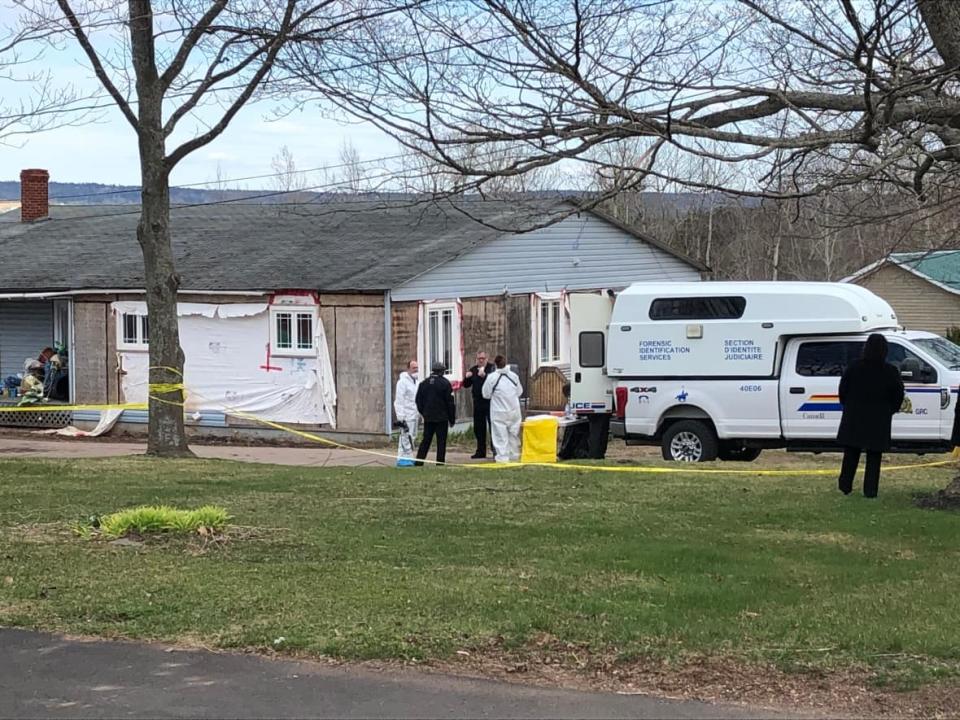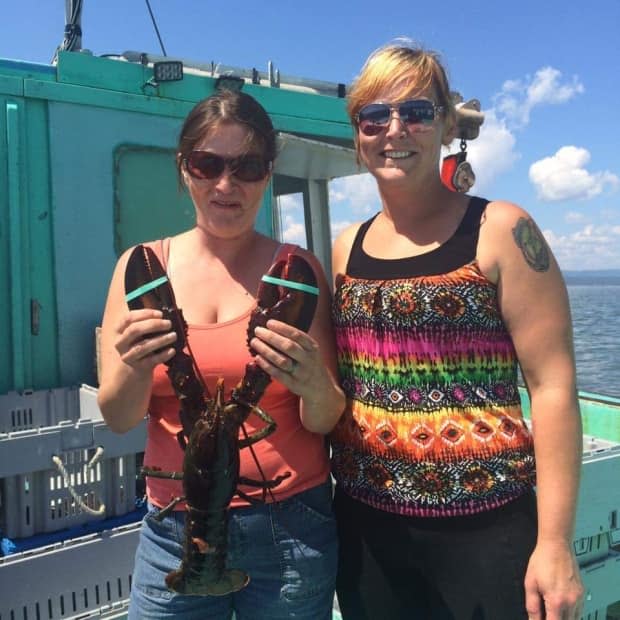Crown at Moncton murder trial wants to call rebuttal evidence on drug-induced psychosis

The resumption of a murder trial in Moncton has been delayed several more weeks as lawyers explore issues raised by a psychiatrist's testimony about the accused.
Calvin Andrew Lewis, 50, is charged with first-degree murder in the May 2, 2020, death of Tina Tingley-McAleer in Hillsborough, south of Moncton.
"Nobody is ready to go ahead right now anyway, everyone needs more time," Court of Queen's Bench Justice Robert Dysart said Thursday when the case briefly returned to court.
Lewis admitted stabbing Tingley-McAleer, his partner of about two years, as part of an agreed statement of facts given to the judge prior to the start of testimony.
However, he denies he intended to kill the 43-year-old. Intent is a key component of first-degree murder, which is a homicide that's planned and deliberate.
Expert witness testimony raised questions
The trial by judge-alone began in April but adjourned May 2 for the judge to weigh admissibility of hearsay evidence.
Crown and defence lawyers also wanted time to look into issues raised by Dr. Dr. Ralph Holly's testimony.
Holly, a psychiatrist at the Restigouche Hospital Centre, was called by the defence and declared an expert witness.
Holly testified that after evaluating Lewis in 2020 and listening to the trial evidence, he believes Lewis likely had psychosis related to his frequent use of methamphetamine.
It was a suggestion that came as a surprise to Crown prosecutors.
On Thursday, Dysart said prosecutors notified the court they intend to get rebuttal evidence from another doctor, but the physician isn't available for four weeks.
Defence lawyers have asked questions of other witnesses throughout the trial about Lewis's drug use, staying awake for extended periods, hallucinations and other erratic behaviour.
Meanwhile, other issues delayed the continuation of the trial.
The defence is seeking to have Lewis's brain scanned for signs of frontal lobe damage. Holly testified a test should be conducted to determine if Lewis's long-term drug use had caused brain damage. That suggestion came as a surprise to the defence.
On Thursday, defence lawyer Breana Vandebeek said they hope to have the test carried out in Bathurst sometime over the coming weeks.
"Defence is unable to close its case until that's done?" Dysart asked.
"Correct," Vandebeek responded.
The defence also wanted more time to look into whether recent Supreme Court of Canada rulings affect the Lewis case.
The cases deal with whether a defence of extreme intoxication to the point of unconscious, involuntary behaviour is available to those who chose to take intoxicants and then commit violent acts.

Earlier this month, Dysart issued a written decision on whether several hearsay statements can be admitted as evidence.
Laura Tingley testified that her sister called her in the days prior to her death to say Lewis had again threatened to kill Tingley-McAleer during a fight.
The judge decided that statement could be used in the trial, though ruled another statement Tingley testified about and one the victim's daughter Samantha Sanford testified about could not be used.
The trial heard from 10 Crown witnesses and two defence witnesses, including Lewis himself, over six previous days.
The agreed facts say an autopsy found she had been stabbed or cut 32 times.
The case is set to return to court July 7.

 Yahoo Movies
Yahoo Movies 